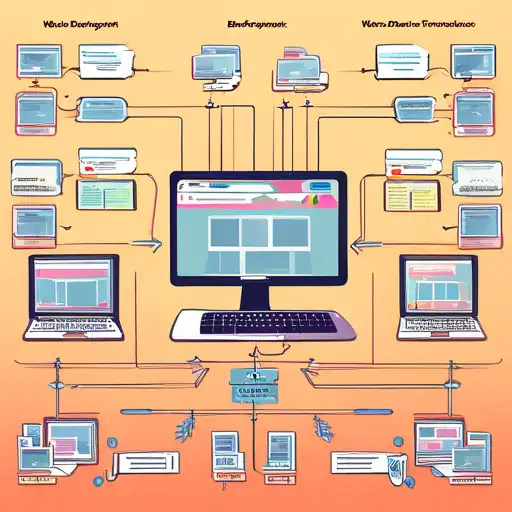Introduction to Web Development Frameworks
In the ever-evolving world of web development, choosing the right framework can be a daunting task. With a plethora of options available, developers often find themselves at a crossroads, trying to determine which framework best suits their project needs. This guide aims to simplify that decision-making process by highlighting key considerations and comparing popular frameworks.
Understanding Web Development Frameworks
Web development frameworks are designed to support the development of web applications by providing a standard way to build and deploy them. They offer a foundation upon which developers can build, saving time and effort by eliminating the need to start from scratch.
Key Factors to Consider
When selecting a web development framework, consider the following factors:
- Project Requirements: The nature of your project will heavily influence your choice. For instance, a content-heavy site might benefit from a CMS like WordPress, whereas a single-page application might require Angular or React.
- Learning Curve: Some frameworks are more beginner-friendly than others. Consider your team's expertise and the time available for learning.
- Community Support: A strong community can be invaluable for troubleshooting and finding resources.
- Performance: Evaluate the framework's performance, especially if your project is large-scale or requires high-speed processing.
Popular Web Development Frameworks
Here's a brief overview of some of the most popular web development frameworks today:
- React: A JavaScript library for building user interfaces, particularly single-page applications.
- Angular: A platform and framework for building single-page client applications using HTML and TypeScript.
- Vue.js: An approachable, versatile, and performant JavaScript framework for building UI and single-page applications.
- Django: A high-level Python web framework that encourages rapid development and clean, pragmatic design.
Making the Right Choice
Ultimately, the right web development framework depends on your specific needs, goals, and resources. It's essential to conduct thorough research and possibly experiment with a few options before making a final decision. Remember, the best framework is the one that aligns with your project's requirements and your team's skills.
For more insights into web development, check out our guide on the latest web development trends.
Conclusion
Choosing the right web development framework is crucial for the success of your project. By considering the factors outlined in this guide and exploring the popular frameworks available, you're well on your way to making an informed decision that will benefit your project in the long run.
